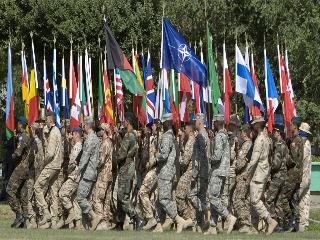“CACI Analyst, October 30, 2013”
NATO in Afghanistan – Paralysis as Policy?
By Richard Weitz (the 30/10/2013 issue of the CACI Analyst)
NATO’s inability to commit to a definite role in Afghanistan beyond 2014, along with perceived strategic setbacks in Central Asia and the South Caucasus, are reinforcing the narrative promoted by the Taliban, al-Qaeda, Iran, and to a lesser extent Russia and China, that a war-weary West is abandoning Eurasia. Urgent measures are needed during the next months to reverse this perception before it gains irreversible momentum. The perception is already leading regional players to hedge against the expected consequences of a diminished NATO role. NATO needs to reaffirm and clarify its commitment to Afghanistan and Eurasia.

Ashgabat Hosts High Level OSCE International Energy Security Conference
By Tavus Rejepova (the 30/10/2013 issue of the CACI Analyst)
Jointly with the Organization for Security and Cooperation in Europe (OSCE) under Ukraine’s chairmanship, Turkmenistan organized the high level international conference “Energy Security and Sustainable Development−the OSCE Perspective” on October 17-18, 2013, to address the issues of stable transit of energy resources, sustainable energy solutions and energy efficiency.
“CACI Analyst, October 16, 2013”
Turkmenistan, China Reach New Energy Deals
By Tavus Rejepova (the 16/10/2013 issue of the CACI Analyst)
Turkmen and Chinese energy officials, in the presence of Turkmenistan's and China's Presidents Gurbanguly Berdimuhamedov and Xi Jinping, signed a number of new agreements and contracts on September 3-4 on the development of Turkmenistan's giant Galkynysh (Renaissance) gas field and to increase the supply of Turkmen gas to China to 65 billion cubic meters (bcm) per year by 2020. A total of thirteen bilateral documents including the energy sector deals were signed to bring the Turkmen-Chinese cooperation to a new strategic level.


